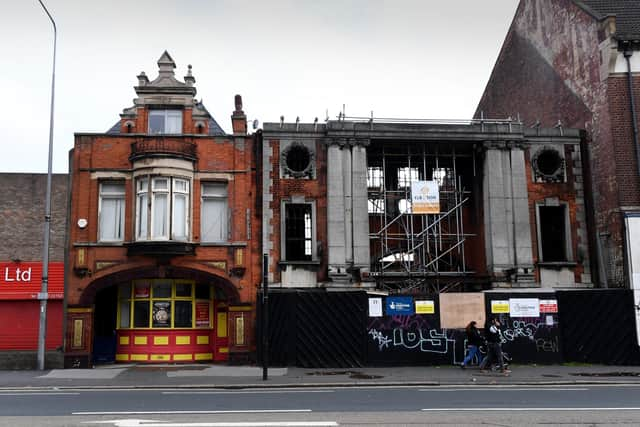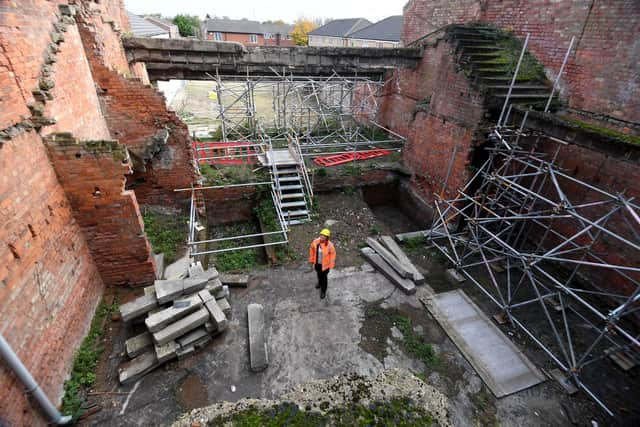Yorkshire’s only remaining Blitz ruin from World War Two to be restored
Thanks to funding from Hull City Council and The National Lottery Heritage Fund, the National Picture Theatre, the last remaining Second Wold War civilian ruin in the UK will be restored.
Set to become a flexible space for community events and education, it will also be a place of reflection for the 1,200 Hull civilians that died during the Second World War.
Advertisement
Hide AdAdvertisement
Hide AdThe contractor will undertake work to restore the façade to its former period style, including its iconic windows and signage. Structural elements, including the two large concrete beams, which saved the lives of the 150 people inside the theatre on the night it was bombed, will also be preserved.


Councillor Rob Pritchard, Portfolio Holder for Culture and Leisure, said: “The council is looking to appoint a contractor who can sensitively restore the façade and undertake structural work.
“This is an untouched site, and this work will not only protect its future but raise awareness of its significance as a rare surviving bomb-damaged building from the Second World War.”
The former National Picture Theatre was designed by architects Runton and Barry for the De-Luxe Theatre Company and was constructed in 1914.
Advertisement
Hide AdAdvertisement
Hide AdThe building was badly damaged during a Luftwaffe air raid on 18 March 1941, although none of the 150 people inside the cinema at the time were killed or seriously injured.


The former National Picture Theatre gained Grade II listed status in 2007 due to its significance as a rare surviving bomb-damaged building from the Blitz of the Second World War.
Air raids on Hull went on longer than on any other British city and, out of Hull’s 91,660 houses, only 5,945 survived the air raids undamaged.
Remedial work to stabilise the building took place in 2020 and now the major works are scheduled to begin in 2024.
